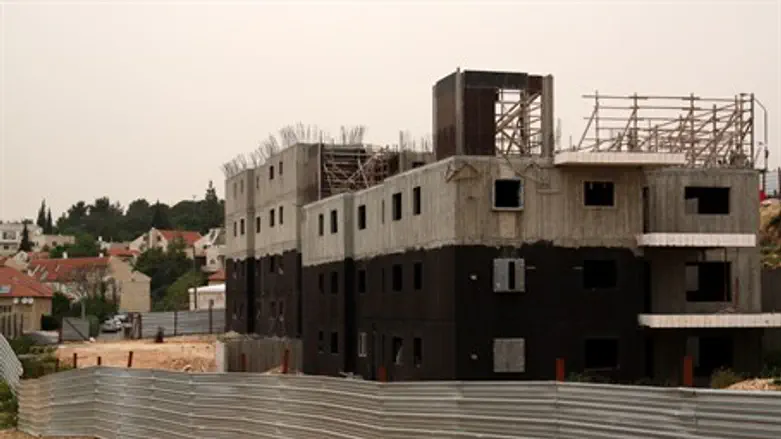
The Supreme Court ruled on Tuesday that several buildings in the eastern part of Beit El, located in Samaria's Binyamin region, are to be demolished by July 30, thereby rejecting the petition of the company that constructed the buildings.
With the support of the state, the company had requested the cancellation of a previous ruling against the buildings, and asked to allow the construction process to be allowed to advance as planned.
In making the ruling, Supreme Court President Judge Miriam Naor wrote, "after examining the writings and hearing the verbal claims, we reason that the claims of the petitioner do not justify a deviation from the concluding principle of the debate."
Back in the original petition, Naor had in fact asked to give an extension to advance the planning processes and opposed the majority ruling calling to destroy the buildings.
Naor noted that in the ruling Tuesday that construction planning had advanced but had not yet reached completion, which evidently was a key sticking point.
"In the debate the state noted that all of the orders (on the issue) need to be discussed before the supreme council an additional time in the presence of the sides, and afterwards will be brought to the defense minister."
"The state said there is no obstacle for the debate before the supreme council to take place this coming July and that the planning will be completed within a 'short' time frame. However, it had difficulty giving a response to the question of what the expected date for completion of the planning process will be," added Naor.
Deputy President Judge Elyakim Rubinstein said that "at the end of the day, one who builds on private land builds at his own risk and takes on the risk, something which is preventable in advance and very unfortunate."
"It's a shame for the (need for) litigation, for the political tone encapsulated in the issue due to the circumstances we live in, and for the result that could have been prevented," he added.
It has been argued that in many cases the Supreme Court rules in favor of supposed private Arab landowners who claim ownership to land being built on by Jews without presenting any proof of ownership. Likewise there is criticism of the paradigm by which all non-state land in Judea and Samaria is automatically considered to be Arab-owned private land, even without any proof of ownership.